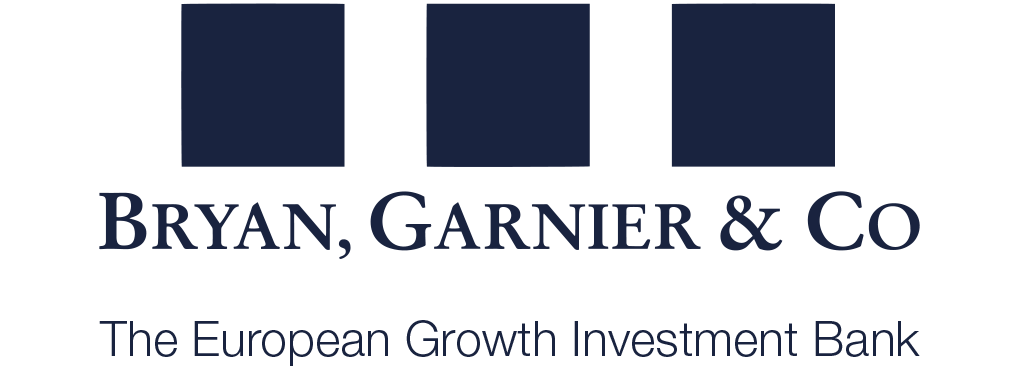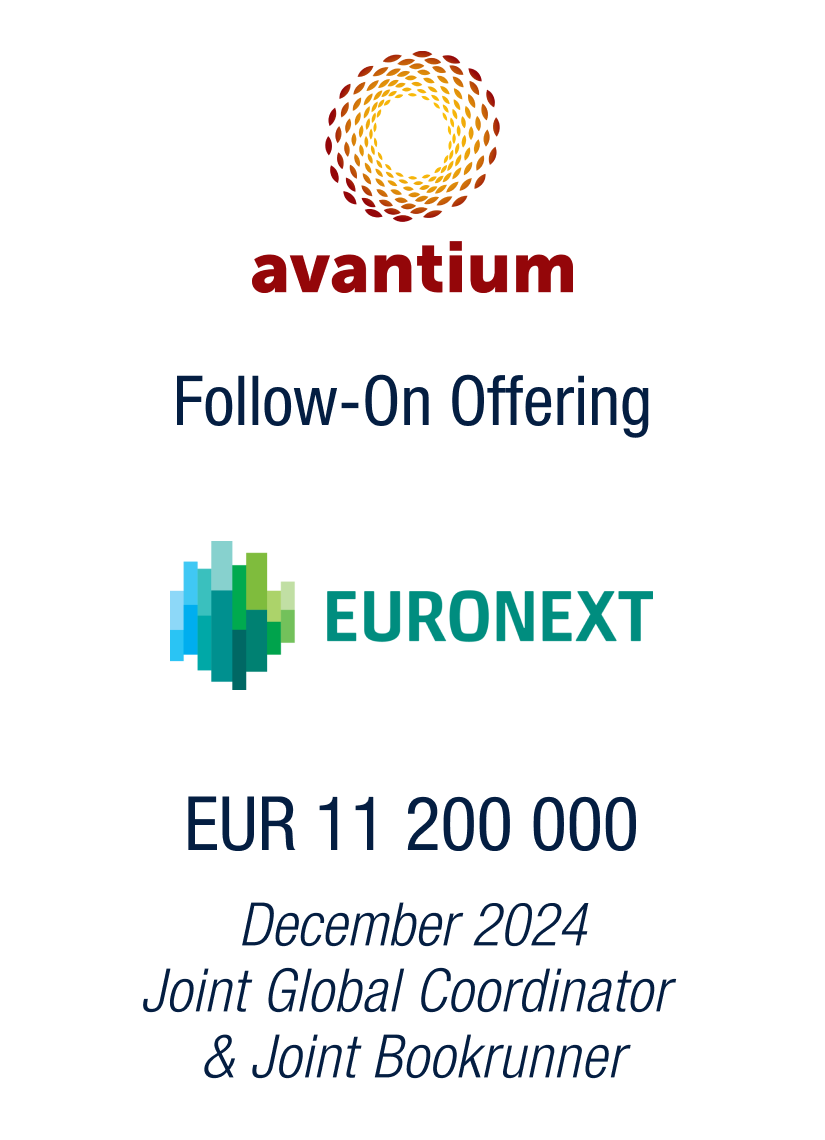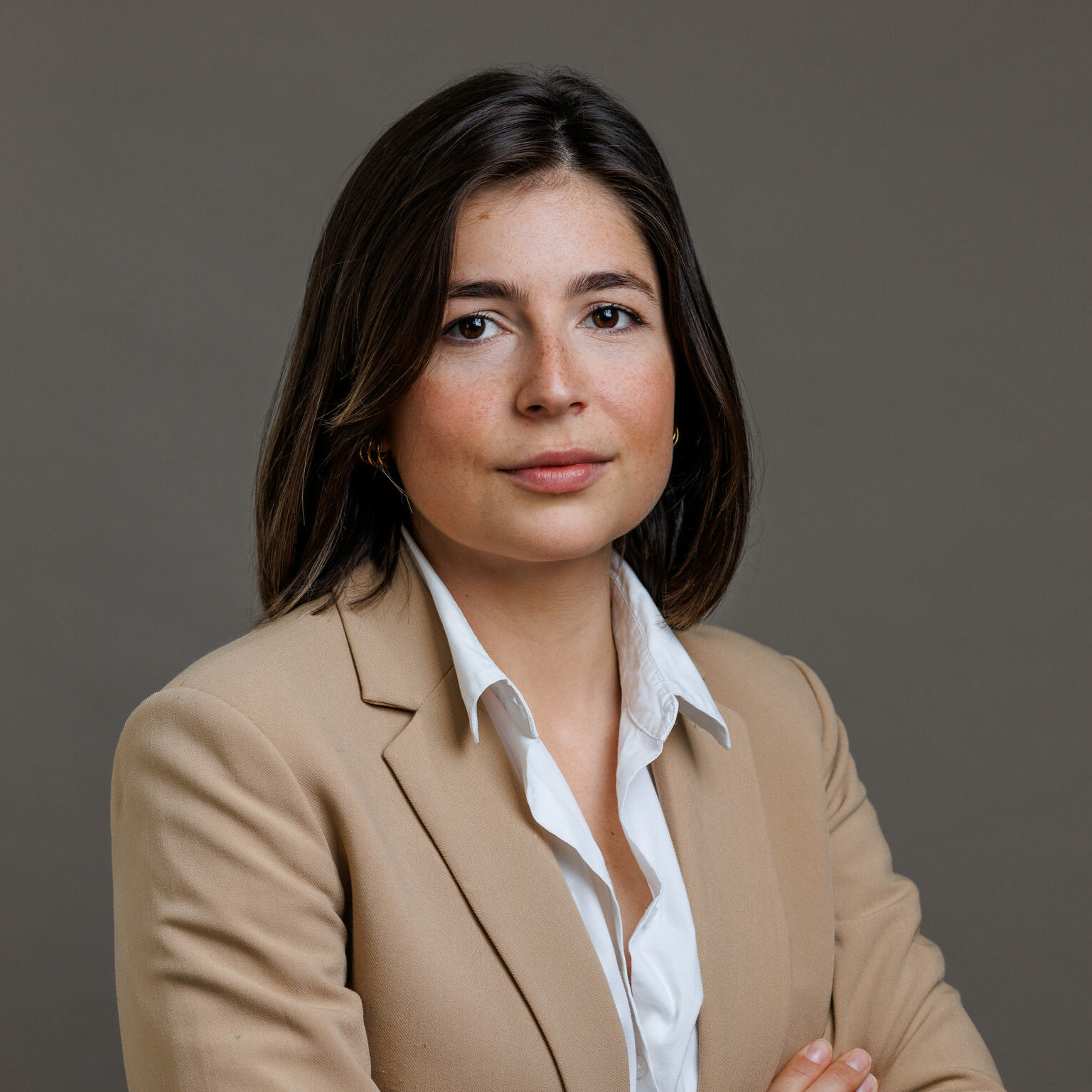BG Insight Series - Aidon and Alder
Vanessa Parr
Welcome to Bryan Garnier’s Insights Series, where we explore key trends shaping the future of energy, technology, and healthcare. In this edition, we dive into the smart grid sector with insights from Tommi Blomberg, CEO of Aidon, and Henrik Flygar, Partner at Alder, Aidon’s former majority shareholder.
Aidon is at the forefront of this revolution, delivering advanced smart metering solutions that empower utilities to meet the demands of a rapidly changing energy landscape. As Tommi Blomberg explains: “Smart grids are critical for enabling the shift to sustainable energy by optimising energy efficiency, enhancing grid reliability, and integrating renewable sources seamlessly.”
The push toward decarbonisation has created a pressing need for smarter, more resilient grids. Henrik Flygar highlights the potential: “With growing energy demands and a strong focus on sustainability, the smart grid sector offers immense potential for innovation and investment. From cutting-edge technologies to favourable government policies, the industry is ripe for growth.”
Aidon’s solutions are helping utilities unlock the power of real-time data, predictive maintenance, and advanced analytics, ensuring the grid can adapt to evolving needs.
Recently, Aidon joined forces with Gridspertise, marking a significant milestone in the company’s journey. This partnership combines Aidon’s expertise in smart metering with Gridspertise’s global reach, opening new doors for expansion in both established and emerging markets.
Reflecting on this move, Tommi Blomberg shares: “This partnership allows us to scale faster and deliver even greater value to our customers, all while driving innovation in the energy sector. Bryan Garnier’s support was invaluable throughout this process.”
As the energy sector continues to evolve, the role of smart grids will only grow in importance. From integrating renewable energy to enhancing grid stability, companies like Aidon are tiling the way for a sustainable energy future.
Bryan Garnier remains committed to supporting innovators driving the future of energy and sustainability. Join us in this episode as we uncover the transformative impact of smart grids with Tommi Blomberg, CEO of Aidon, and Henrik Flygar from Alder.
Get in touch
If you are operating in high-growth sectors focusing on solving sustainability challenges, our team will provide you with tailored advice rooted in deep sector knowledge.
Our transactions
Bryan, Garnier & Co offers a complete range of investment banking services, from growth financing to mergers and acquisitions.
The Mobility Sector: Investment Opportunities in a Post-Covid World with Florent Roulet, Partner & Head of Mobility at Bryan Garnier & Co
In a recent Smart Bourse feature, Florent Roulet, Partner & Head of Mobility at Bryan Garnier & Co, shared his insights on the rapidly evolving mobility sector. He explored the challenges and opportunities facing this fast-growing industry, which includes key players like Uber, Bolt, and shared transportation services such as bikes and scooters.
Florent highlighted how the mobility sector was hit hard by the pandemic, with many companies facing complete shutdowns and little to no revenue for almost two years. Despite these setbacks, the industry is now rebounding, driven by a growing demand for greener, more sustainable transportation options. According to Florent, the global mobility market, valued at $300 billion, is expected to triple in the next decade, with Europe holding about 25% of the market share. This growth presents a significant opportunity for investors seeking to capitalise on a sector that is both recovering as well as transforming toward more sustainable models.
Key topics discussed include:
- The impact of Covid-19 on the mobility sector and its recovery
- The rise of green and shared mobility options
- The crucial role investors play in driving innovation and funding growth
At Bryan Garnier, we help clients navigate complex investment landscapes, offering a range of services including mergers and acquisitions, capital raising, strategic financial advisory, and sector-specific expertise. Specialising in market insights and equity research, we support our clients in making informed investment decisions and optimising their portfolios.
Watch the full video with English subtitles here:
Tech Tour Energy & Decarbonisation 2024: A Showcase of Innovative Solutions for the Future of Energy
Bryan Garnier is proud to have partnered with Tech Tour at the highly anticipated Tech Tour Energy & Decarbonisation 2024 event, held in Essen, Germany, from 26-27th November. This prestigious gathering brought together more than 80 of Europe’s most promising companies specialising in energy transition and decarbonisation solutions. These companies were hand-picked for their exceptional growth potential, selected from a pool of over 1,000 applicants.
The event featured a dynamic mix of over 140 investors and strategic partners from around the globe, including some of the most influential players in the sustainability and energy sectors. These experts had the chance to explore cutting-edge solutions in renewable energy production, green energy storage, carbon management, and advanced mobility.
Tech Tour Energy & Decarbonisation 2024 hosted a range of innovative companies at the forefront of the transition to cleaner energy, with key themes centred on sustainable energy production, energy storage technologies, and the hydrogen economy. Among the standout sectors were Green Energy Storage and Carbon Management, with groundbreaking solutions presented to improve energy efficiency and reduce carbon footprints.
As part of the event, participants engaged in numerous one-on-one meetings, exploring opportunities for partnerships, co-investments, and strategic collaborations. Over 500 individual sessions were held, further emphasising the high-level networking that makes Tech Tour a pivotal event for sustainable innovation in the energy sector.
Falk Mueller-Veerse, Partner & Head of DACH at Bryan Garnier & Co, commented: “The Tech Tour Energy & Decarbonisation 2024 event highlighted the immense potential of European companies pioneering sustainable solutions. The energy transition is accelerating, and platforms like Tech Tour are crucial in bringing together the right stakeholders to drive this change”.
With over 300 participants from 24 countries, the event served as a pivotal platform for advancing sustainable solutions and fostering meaningful partnerships that will shape the future of the energy landscape, highlighting the collective efforts driving progress in the decarbonisation sector and addressing global energy challenges.
At Bryan Garnier & Co, we are honoured to have been a partner at Tech Tour Energy & Decarbonisation 2024 and look forward to supporting the continued success of Europe’s most innovative energy companies. For more information, visit Tech Tour’s post.
Long-Acting Injectables: a lasting dose of innovation
PARIS | November 13th, 2024 – Bryan Garnier is pleased to release “Long-Acting Injectables: A Lasting Dose of Innovation,” an in-depth exploration of how long-acting injectables (LAIs) are transforming patient care and driving expansion across diverse therapeutic areas.
While LAIs have proven essential in psychiatry, their impact now reaches into fields like opioid use disorder (OUD), and oncology, with obesity emerging as the next frontier. In Schizophrenia alone, the USD 4 billion LAI market continues to expand, with LAIs capturing over 15% of the antipsychotic segment alone, offering reduced dosing frequency and lowering relapse risks.
Beyond LAIs, reformulation innovations such as oral biologics, fast-acting injectables, and enhanced bioavailability technologies are accelerating interest among investors and healthcare providers, paving the way for new therapeutic possibilities.
In this report, we examine these transformative developments and profile key innovators advancing long-acting solutions.
To access these insights and explore the future of patient-centric therapies, download our full report here.
Plastic recycling with Paul de Froment, BG IRIS Managing Director at Bryan Garnier
In a recent Smart Bourse segment, the spotlight was on plastic recycling and the critical challenges the sector faces. Paul de Froment, Managing Director in Bryan Garnier’s research team IRIS and Head of the Cleantech research team, shared insights into the complex plastics recycling ecosystem. He highlighted that only 10% of global plastic waste is currently recycled, with Europe achieving a modestly higher rate of 15%.
Paul also outlined the complexities of recycling, noting that a robust value chain is essential, spanning collection to reuse. PET remains the most recyclable plastic, driven by regulatory and consumer momentum pushing for sustainable practices.
Key points from the interview included:
- The recycling value chain and its limitations
- Drivers of market growth: regulation and consumer demand
- Thermomechanical vs. chemical technologies
- Investment opportunities and the path toward scalable solutions
At Bryan Garnier, we help companies to navigate complex financial landscapes by providing a range of services, including mergers and acquisitions facilitation, capital raising such as IPOs and private placements, industry-specific expertise and strategic financial advisory services. Specialising in market insights, risk management, and equity research, Bryan Garnier assists clients in making informed decisions, optimizing their capital structures, and addressing industry-specific challenges.
Watch the full video with English subtitles here:
Paul Lequeux's story: Investment Banking Director
We sat down with Paul Lequeux, Investment Banking Director, to discuss his seven years at Bryan, Garnier & Co across our Paris, New York and London offices.
Over the course of your seven years with Bryan Garnier, how have your roles and responsibilities evolved?
I started as an M&A intern in 2017 in the Paris office, followed by a little over six years in New York, and I am now based in our London office. I spent my first two years doing a rotation across our M&A, Sales & Trading, Equity Research, and ECM desks. While working in New York, I found myself drawn towards placing our ECM deals with Nicolas d’Halluin, mainly in the Healthcare sector. I also worked on Private Placements with Greg Revenu, expanding our network with US investors, particularly within the venture capital and private equity ecosystems. After my time in New York, I decided to shift my focus to our London office and to work mainly with Pierre Kiecolt-Wahl and Christophe Alleman, which felt like the right move to align with both my personal priorities and professional growth, bridging the gap between European issuers and US investors.
How has working in diverse cultural and business environments shaped your approach to problem-solving and client relations?
Working in New York exposed me to professionals from all over the world, which has been incredibly valuable for business. It helped me become more adaptable, especially in working with clients from diverse cultural backgrounds. This international experience, along with my time in Paris, New York, and now London, has enriched my perspective and enhanced my approach to both problem-solving and client relations.
What initially attracted you to Bryan Garnier?
Bryan Garnier’s focus on growth sectors really appealed to me, being at the forefront of innovation, quickly evolving and reshaping industries. The company was also on a promising growth trajectory, which made it a great opportunity. Joining a smaller firm felt like a smart bet, where I could grow alongside the company and take on responsibilities earlier in my career.
What do you think makes Bryan Garnier different from other companies?
The entrepreneurial spirit is definitely unique to Bryan Garnier, and I think this truly sets it apart. Even as we’ve grown, this spirit remains core to our DNA. The firm’s partnership structure also stands out, offering ambitious employees a path to equity ownership. The accessibility of the Partners is another big difference; they are approachable and involved. I have a close relationship with several Partners with whom I have been working since I joined the firm, and their continued mentorship has been invaluable for my learning and growth.
Can you share some of the most memorable deals you’ve been involved in?
One that stands out is the Nasdaq IPO of Genfit, a biotech company. This was my first meaningful contribution while working in our New York office, bringing an order from a large US institution. This allowed me to ring the bell at the Nasdaq with management. The experience of seeing our team’s picture up in Times Square was unforgettable.
On the private side, as part of our collaboration with Greg Revenu, we closed a major capital raise with a NY-based venture capital firm and Palantir Technologies for a Swiss growth company. This transaction helped solidify our leadership in bringing American VC firms to investing in European growth companies.
More recently, we led together with Pierre Kiecolt-Wahl a complex financing for Egetis Therapeutics, a Swedish rare disease company, anchoring the transaction with Californian-based Healthcare specialist Frazier Life Sciences, alongside BlackRock.
Other notable deals include two crossover rounds for Abivax led by Olivier Garnier that we anchored with top-tier US biotech specialists, the Nasdaq IPO of BioNTech and their subsequent $500 million follow-on round, and a follow-on offering for a promising MedTech company called Onward Medical anchored by reputable strategic investor Ottobock. These deals were instrumental in strengthening our reputation within Healthcare ECM.
What are some of the everyday challenges you face in your work, and what skills or personal qualities help you handle those?
The amount of work combined with the need for attention to detail is a constant challenge, particularly when preparing presentations or financial models. As I’ve become more senior, negotiation has also become critical. One example that comes to mind involves bringing together top shareholders with different perspectives on terms and structure to successfully close a deal.
What one quality do you think is most critical to succeed in the investment world?
The ability to fully understand a situation and put yourself in the other person’s shoes is crucial. Whether it’s what they stand to gain or lose, understanding these factors allows us to find the best solution to bring parties together. Our job isn’t just about structuring deals; it’s also about matching the offer with demand in a way that makes a transaction successful.
EUROSPINE 2024: Insights into the future of spine innovations
PARIS | November 5th, 2024 – Bryan Garnier is pleased to present our insights from the recent EUROSPINE 2024 conference, held in Vienna, highlighting key trends and discussions that are shaping the future of spinal healthcare in Europe.
While the conference explored a broad range of advancements, it notably diverged from the tech-heavy, robotics-centered approach seen in U.S.-based conferences like NASS. Instead, Europe’s focus remains on surgical interventions for complex spine disorders, though a shift towards radiation-free navigation is beginning to take shape.
The conference underscored the ongoing debate around cost-effectiveness of navigation systems over robotics, sparking interest in VR alternatives as an affordable and practical solution. Additionally, a holistic approach was called for, advocating for improved diagnostics and planning across the surgical roadmap—a step towards more patient-centric care.
On the implant front, we observe significant momentum towards motion-enabling implants and innovations aimed at boosting fusion rates. Although implants may appear to be a more traditional sector, recent advancements continue to push boundaries, offering transformative potential in spinal health outcomes.
Our summary delves deeper into these insights, analysing the implications of these trends on the spine care industry and the evolution of the surgical landscape.
To explorer a full analysis of EUROSPINE 2024, download our report here.
Welcome to our Q3 2024 Quarterly Report
In our Q3 2024 report, we capture the key developments and outlooks across Private Placements, ECM and Debt Capital Solutions, alongside Healthcare, Software & Fintech, Energy Transition & Sustainability, Industrial Tech, Business & Tech and NextGen Consumer sectors. This underscores Bryan Garnier's integral role in navigating and facilitating significant transactions amidst evolving market conditions.
Private Placements, ECM, and Debt
Private capital markets are gradually recovering from 2022’s public market adjustments, with companies navigating capital raising challenges and investors exploring new liquidity routes. European startups raised over EUR 29bn in H1 2024, a 12% increase from last year, driven by AI advancements.
The stock market remained strong in 2024, with the S&P 500 up +20% and NASDAQ up +19% YTD by September, bouncing back after a volatile August. In Europe, the STOXX 600 rose +2.8% in Q3, supported by improved inflation figures and an ECB rate cut.
ECM transactions slowed in Q3 due to seasonal trends and market volatility, with global volumes down -36% from Q3 2023.
Monetary policy in Europe and the US is shifting towards easing, aiming to adjust for slowing inflation. European credit spreads have stabilised between 275-350 bps in 2024, a marked improvement from the over 500 bps volatility seen in 2023.
Healthcare
Biopharma
Venture funding saw a 25% rebound to USD 9.8Bn, led by large-scale deals, though smaller transactions faced challenges. M&A activity remained strong, while the IPO market continued to see limited movement, with few listings, mainly from mature companies.
Medtech
The Medtech sector maintained steady growth, with a focus on larger transactions in both private placements and M&A. Private equity interest in healthcare software increased, while Medtech stocks continued to perform well, and IPO activity started to show signs of revival.
Healthcare Services
The diagnostic imaging sector is experiencing growth due to increased patient demand, prompting strategic acquisitions to expand operations. Conversely, the private care home sector is facing challenges that hinder transaction completions, highlighting the importance of effective regulatory platforms. Additionally, cross-border expansion in healthcare continues to be a significant trend, while the pharma outsourcing industry is navigating potential regulatory changes that may impact operational strategies.
Software & Fintech
Software
The European TMT market experienced robust activity in H1 2024 despite ongoing macroeconomic challenges. While deal volume was down 8.9% compared to H1 2023, cumulative deal value surged by 102.5% year-on-year, indicating a return to higher pricing driven by competition for high-quality assets, particularly in the large-cap software segment.
Fintech
The global fintech sector experienced fluctuating funding, decreasing from USD 62.3 billion to USD 51.9 billion, while M&A activity remained strong and the IPO market showed early revival signs. In Europe, fintech investment fell from USD 19.1 billion to USD 11.4 billion, yet significant transactions continued, particularly in the payments and wealthtech sectors, with key trends including the convergence of wealthtech and healthtech, and increasing interest in digital assets following the SEC’s approval of Bitcoin ETFs.
Energy Transition & Sustainability
Mobility
In the European EV charging ecosystem, independent CPOs are increasingly acquiring assets to expand their charging station deployments. Many mobility service providers are now EBITDA or cash flow positive, drawing interest from private equity firms and paving the way for potential IPOs in 2025-2026, while the battery segment faces delays in gigafactory projects due to rising costs and logistical challenges.
Agtech & foodtech
After several challenging quarters, the European food and agtech sector is witnessing increased deal activity, particularly in alternative proteins and biologicals, with additional transactions anticipated soon. Investors are cautiously approaching valuations amid uncertain exit conditions, emphasising the importance of operational and capital efficiency in fundraising for companies with strong commercial pipelines and industrialisation roadmaps.
Green & recycled plastics
Global plastics production is outpacing population growth, prompting interest in new recycling methods beyond traditional mechanical recycling, which often yields lower-quality materials. Chemical and fiber-to-fiber recycling are emerging as high-quality alternatives, potentially enabling brand owners to meet sustainability goals and leading to greater adoption of these advanced technologies.
Green gas & biofuels
Investments over USD 1 billion in ultra-low carbon e-fuels mark a shift from traditional biofuels to sustainable alternatives like waste and non-food crops, increasing competition for feedstock access. Simultaneously, the expanding power demands of renewables highlight the urgent need for improved grid infrastructure.
Industrial Tech
Cybersecurity saw strong M&A and financing, driven by AI security and cloud infrastructure, with new regulations boosting European growth. In industrial automation, stable demand and AI integration continue to fuel consolidation, especially in non-traditional sectors like agriculture.
The satcom market risks becoming a near-duopoly, with SpaceX and possibly Amazon gaining from unmatched economies of scale.
Business & Tech-Enabled Services
Engineering
R&D investments are driving engineering growth, but the sector faces recruitment challenges, especially in new technology roles with high turnover. Engineering is adapting to green and digital transitions, focusing on low-carbon projects. Market consolidation is advancing, with firms pursuing acquisitions to scale up.
Digital Agencies
Digital agencies have outperformed traditional firms in volatile markets by delivering measurable results and enhancing customer engagement. The sector’s quarterly deal counts have remained stable, with a notable increase in invested capital compared to last year.
The Consulting Market
The consulting sector is experiencing growth driven by trends in digitalisation and digital transformation, management consulting, rising Environmental, Social, and Governance (ESG) standards, and the emergence of HR consulting.
Testing, Inspection & Certification (TIC)
The fragmented TIC sector is witnessing ongoing M&A activity driven by a strengthening regulatory environment, characterised by four key trends: rising ESG standards, digitalisation through new technologies and AI enhancing productivity, market extension into adjacent areas like compliance and consulting, and a stable interest rate environment with trading and transaction multiples remaining high.
NextGen Consumer
M&A activity in the consumer, retail, and leisure sectors surged in July but declined in August and September, suggesting delays in pre-summer deals. Overall, Europe outperformed North America in Q3 amid valuation gaps and election uncertainties.
Bryan Garnier continues to expand its healthcare team with the addition of Partner Vincenzo Di Nicola
LONDON, 22 OCTOBER 2024 – Bryan, Garnier & Co, the leading investment bank for healthcare and technology-related companies, today announces that Vincenzo Di Nicola has been appointed as a Partner in the healthcare team. He will continue to strengthen the bank’s European and US healthcare practice from the London and New York office.
Vincenzo has over 20 years of investment banking experience predominantly focused on transatlantic healthcare transactions and with a track record of building teams. He joins from Piper Sandler where he was Global Head of Pharma Services and Co-Head of European Healthcare. Before that, he was Co-Head of Pharma Services and European Head of Healthcare at Cantor Fitzgerald.
Vincenzo earned a Bachelor’s degree in International Economics from the University of Naples and a Master’s in Finance from the London Business School.
Hervé Ronin, Partner and Head of Global Healthcare said: “We are delighted to welcome Vincenzo, who will be a great asset to the London team as we look to keep growing our pan-European healthcare capabilities. His appointment, on the back of the recent goetzpartners hires, will enhance our advisory expertise to leading international and transatlantic companies.”
Vincenzo Di Nicola added: “I am very excited to be part of the Bryan Garnier healthcare team. The bank has become a leader in Life Sciences, advising on a number of high-profile M&A, financings and IPO transactions in the sector, and I know that they have ambitious plans for future growth. I am looking forward to using my expertise to help the bank further deepen its healthcare services.”
With offices in Europe and the US, Bryan, Garnier & Co has established itself as one of the most active investment banks in pan-European growth financing via the public and private markets.
Advising healthcare companies has been one of the investment bank’s core competencies for decades, including advising RNA pioneers Moderna and BioNTech on several financing rounds and IPOs, and most recently advising vaccine group Valneva as Joint Global Coordinator and Joint Bookrunner on its Euronext capital increase.
Bryan Garnier’s holistic approach to advising clients on the full range of equity, debt and M&A transactions creates a true client-first model, building long-term relationships over the full business lifecycle. As a sector-focused bank since inception, Bryan Garnier specialises in Healthcare, Software & Fintech, Energy Transition and Sustainability, Industrial Tech, Business and Tech-Enabled Services and NextGen Consumer. Bryan Garnier’s mission of investment banking for a better future continues to drive the firm as it backs innovative companies and their investors that are providing solutions to some of the world’s most important challenges.
About Bryan, Garnier & Co
Bryan, Garnier’s is a European growth investment bank helping companies in the healthcare and technology related sectors become global champions. By combining deep sector expertise with an entrepreneurial mindset, Bryan Garnier provides companies and their investors with independent growth strategic advice, and leading access to buyers and capital in Europe, US and Asia
As a full-service investment bank, the firm offering includes private and public growth financing solutions, mergers and acquisitions (M&A) advisory, research insights, and institutional sales & execution. Founded in 1996, Bryan, Garnier & Co is an independent partnership with around 200 employees located in major financial centres in Europe and the US.
Bryan Garnier Interview with Cedrik Hoffmann, CEO of Ameba, NextGen supply chain data platform
PARIS | October 10th, 2024 – Bryan Garnier was pleased to interview Cedrik Hoffmann, serial entrepreneur & supply chain innovator.
Cedrik Hoffmann’s journey as a serial entrepreneur spans continents and industries, from his early days studying in China to leading ventures across Taiwan, Germany, and Mexico. With a background in commodities trading and an eye for scalable solutions, Cedrik co-founded Ameba, a groundbreaking supply chain software platform that minimises disruptions by seamlessly capturing and structuring supply chain data without requiring drastic operational changes.
Ameba: revolutionising supply chain execution
Ameba is more than just a visibility tool – it’s a supply chain execution platform that integrates directly with existing communication channels like email and messaging apps. Acting as a “ghost in the background,” Ameba captures and updates data in real-time, ensuring brands maintain an agile response to shifting consumer trends without overhauling their systems. This innovative approach allows brands to stay ahead in fast-paced markets by addressing internal supply chain risks more effectively than traditional solutions.
Bryan Garnier’s Software team: expertise and network in supply chain software
Led by Thibaut De Smedt and Stanislas de Gmeline, Bryan Garnier’s software team has a strong track record in the supply chain sector, advising on significant transactions such as Cathay Capital’s investment in FuturMaster (supply chain planning system) and two LBO rounds for Sinari Group (French leader of Transport Management System) firstly with NewAlpha and later with Bridgepoint, as well as build-up made by Groupe Sinari. The team, including thought experts like Thibaut de Smedt and Ysée Long, who published a white paper on supply chain software, maintains close connections with both established market players and the latest innovators in supply chain technology. This deep network and expertise ensure Bryan Garnier is well-positioned to provide clients with unparalleled insights and opportunities within the sector.
This interview with Cedrik showcases both his forward-thinking approach and Bryan Garnier’s dedication to leading advancements in supply chain solutions.
To download the full interview with Cedrik, fill in the form.


























